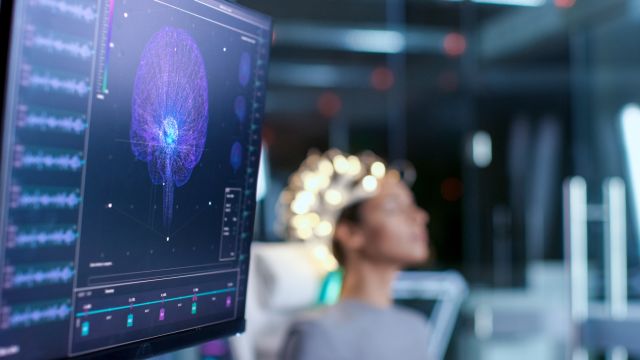Updated on July 14, 2025
When you hear epilepsy, several words might come to mind: seizure, antiepileptic drugs, CT scan, brain scan. Attention deficit hyperactivity disorder (ADHD) probably isn’t on your list – but it should be.
Thanks to a team led by Alan Ettinger, MD, of the Epilepsy Center at Neurological Surgery, PC, and a study published in the journal Epilepsia, doctors and researchers may now link the two conditions.
The link between epilepsy and ADHD in adults
Dr. Ettinger and his team sent a survey to nearly 1,400 adults who reported having active epilepsy. The survey included questions on ADHD symptoms such as hyperactivity and inattention, as well as seizure frequency, an anxiety assessment and general physical and mental health questions.
Using statistical analysis, researchers found that almost one in five adults with epilepsy reported having symptoms of ADHD. That’s four times higher than the general population. The study also found that those with ADHD symptoms were nine times more likely to have depression and eight times more likely to have anxiety.
Doctors and researchers can’t say what for sure causes adults (and children) with epilepsy to have a higher prevalence of ADHD symptoms, or even which condition may appear first. ADHD is often diagnosed in childhood, and some people will carry the symptoms into adulthood. The inattention and hyperactivity common in ADHD could be caused by seizures, or it could be the other way around.
What we do know is that the brain controls behavior, and those commands can be more disrupted in people suffering from seizures. It’s also been speculated that where the seizures occur in the brain can affect the severity of psychological disruption. For example, if a person experiences seizures in the part of the brain that controls emotional response, that person may be more likely to have personality or behavioral disorders. We also know that epilepsy drugs may worsen attention, so doctors may end up adjusting epilepsy treatment to also help treat ADHD.
Regardless of the connection, this study highlights the need for physicians and researchers to take a bigger, more inclusive look at epilepsy and ADHD in adults. Screenings for underlying psychological conditions such as ADHD, depression and anxiety could make a big difference in the management of adult seizure disorders.
Seeing the signs and taking action
ADHD, as well as other psychological disorders, can be hard to diagnose. Keep an eye out for some of these signs of ADHD in adults:
- An unexplained feeling of underachievement
- Lack of focus and difficulty concentrating
- Disorganization and trouble with planning
- Impulsiveness, or making rash decisions
- Irritability and impatience
- Difficulty keeping track of meetings, bills and important dates
- Problems with relationships
Monitor the frequency of these symptoms using a notebook or journal, and express your concerns to your doctor. They can help to rule out other health problems and refer you to a specialist for proper diagnosis and medical treatment.
If your healthcare team does determine you have ADHD, consider trying some of these helpful strategies, which could not only help you keep a handle on your ADHD, but may also be indirectly useful for epilepsy management:
- Stay active. Physical activity is a great way to manage both ADHD and epilepsy. It provides an outlet for the restless energy common in adults with ADHD. It also helps to reduce stress, a trigger for both seizures and ADHD symptoms. And while there are rare cases of exercising causing a seizure, for most epilepsy sufferers, moderate workouts have been shown to decrease seizure frequency. Another bonus? Exercise combats the decrease in bone density that can be a side effect of some antiepileptic medications.
- Get some sleep. Lack of sleep causes a slew of complications for people with epilepsy and those with ADHD. Adults with ADHD have higher rates of sleep disorders like restless leg syndrome, and the extra energy common with ADHD can make it hard to get to bed. Lack of sleep is also a known trigger of seizures. Try to aim for a solid 7 to 8 hours of sleep each night.
- Boost your brain with food. Unfortunately, there is no one diet that’s been proven to cure ADHD or epilepsy. However, loading up on omega-3 fats found in foods such as fish and avocados may help with ADHD. And, some experts recommend low-carb foods to reduce seizure frequency, but talk to your doctor first before starting any diet on your own.



